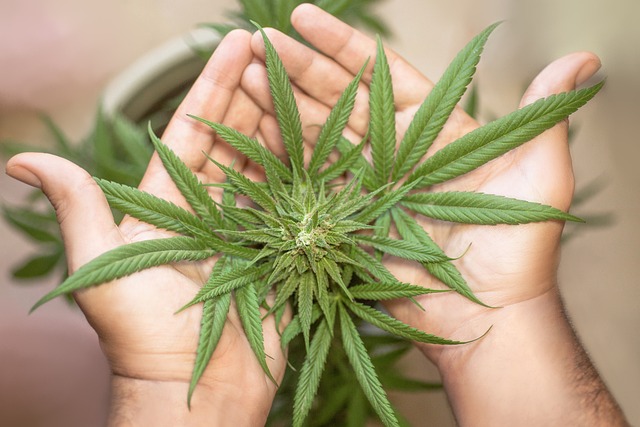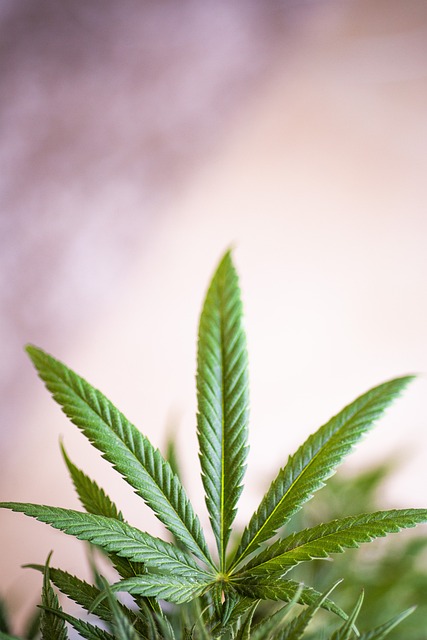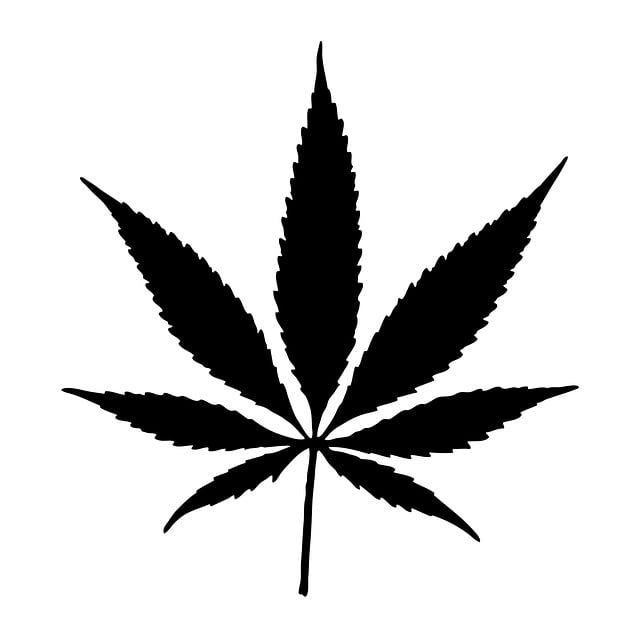THCA (Tetrahydrocannabinolic Acid), a non-psychoactive cannabinoid with potential therapeutic benefits, has a complex legal status in Australia. At the federal level, THCA is classified as an illicit substance under the Narcotic Drugs Act 1967 due to its relationship to THC, a Schedule 9 controlled substance. However, some Australian states have enacted legislation that allows for the use of THCA flowers for medical or therapeutic purposes from licensed producers, with New South Wales and Victoria being notable examples. It's crucial for consumers to be aware of state-specific regulations, as the legality and permitted uses vary across Australia. Users should note that while THCA itself is not psychoactive, it can convert to THC when heated, leading to potential psychoactive effects. Side effects of THCA use include dry mouth, red eyes, dizziness, and sleepiness. Given these factors, individuals interested in THCA flowers for medical or wellness purposes should stay informed about legislative changes, adhere to state laws, and consult healthcare professionals. This dynamic legal landscape underscores the importance of understanding the specific regulations that apply to THCA in one's jurisdiction within Australia to ensure safe, lawful use.
Exploring the nuanced relationship between cannabis derivatives and health, this article sheds light on the emerging interest in THCA (Tetrahydrocannabinolic Acid) flowers within the Australian landscape. As we delve into the implications of THCA flower consumption, we consider its legal status and potential side effects across various states. With a focus on understanding the science behind THCA and its effects, this piece aims to inform users in Australia about the legalities and health considerations associated with this cannabinoid-rich plant. Join us as we navigate the evolving legal landscape of THCA flowers, highlighting the diverse regulations that shape their use in different parts of the country.
- Exploring the Impact of THCA Flower Consumption: Legal Status and Side Effects in Australian States
- THCA Flower Side Effects Decoded: Understanding the Implications for Users in Australia
- Navigating the Legal Landscape of THCA Flowers Across Different Australian States
Exploring the Impact of THCA Flower Consumption: Legal Status and Side Effects in Australian States

The consumption of THCA flower, a non-psychoactive cannabinoid found in hemp and cannabis plants, has garnered attention for its potential therapeutic properties. In Australia, the legal status of THCA flower varies across different states and territories. As of the current understanding, THCA is legal in various Australian states provided it contains less than 0.3% THC on a dry weight basis, aligning with the Commonwealth’s Narcotic Drugs Act 1967 and corresponding state regulations. For instance, in New South Wales and Victoria, THCA flower can be legally purchased from licensed producers for medical or therapeutic use, with stringent controls ensuring its responsible use. In contrast, other states may have more restrictive policies, necessitating a clear understanding of local laws before consumption or possession.
From a health perspective, while THCA is non-psychoactive, it’s known to possess cannabinoid properties that could potentially offer relief for various conditions without the high associated with its psychoactive counterpart, THC. However, side effects can still arise from THCA flower consumption, particularly if consumed in large quantities or combined with other substances. Common side effects include dry mouth and eyes, dizziness, sleepiness, and potential interactions with prescription medications. It’s crucial for consumers to approach the use of THCA flower with caution, adhering to state-specific guidelines, and consulting healthcare professionals before incorporating it into their wellness routine, especially considering the evolving nature of legislation regulating its use in Australia.
THCA Flower Side Effects Decoded: Understanding the Implications for Users in Australia

Delta-9-tetrahydrocannabinolic acid (THCA) is a non-psychoactive cannabinoid found in the Cannabis sativa plant, which precedes THC upon heating. As THCA flower gains prominence for its potential wellness benefits, it’s crucial for users in Australia to understand its legal status and side effects. In Australia, the legality of THCA flower varies by state and territory, with some allowing its use for medical purposes under specific conditions, while others maintain strict controls due to the plant’s relation to THC, which is classified as a Schedule 9 substance under the Poisons Standard, meaning it is prohibited.
For those in states where THCA flower is legally accessible, it’s important to be aware of its side effects. While THCA itself is not psychoactive, it’s metabolized into THC when heated or decarboxylated. Users may experience mild side effects such as dry mouth and red eyes, which are common with cannabis consumption. However, given the lack of extensive research on THCA’s direct effects due to its legal status in many regions, including Australia, users should proceed with caution. It’s advisable to consult with healthcare professionals before incorporating THCA flower into one’s wellness routine, especially considering individual differences in sensitivity and metabolism. Additionally, as with any substance, potential interactions with prescription medications or pre-existing health conditions must be carefully considered. Users in Australia interested in the therapeutic properties of THCA flower should stay informed about the evolving legal landscape and adhere to state regulations to ensure safe and responsible use.
Navigating the Legal Landscape of THCA Flowers Across Different Australian States

Navigating the legality of THCA flowers across different Australian states requires a nuanced understanding of federal and state regulations. At the federal level, tetrahydrocannabinolic acid (THCA) is classified as an illicit substance under the Narcotics Drugs Act 1967, which aligns with the United Nations conventions to which Australia is a signatory. However, the legal landscape becomes more complex at the state level, where regulations vary significantly. For instance, in some states like New South Wales and Queensland, THCA flowers are illegal for any purpose, reflecting the federal stance. In contrast, states such as Victoria and Western Australia have legislated to differentiate between THC-containing products and those with non-psychoactive cannabinoids like CBD and THCA, allowing for a more permissive environment where these substances are derived from hemp strains compliant with state regulations. It’s crucial for individuals to stay informed about the evolving laws within each Australian state, as possession and use of THCA flowers can lead to legal consequences if not in compliance with state-specific legislation. The varying regulations underscore the importance of understanding the specific legal context one operates in when considering THCA flowers within Australia.
In conclusion, the consumption of THCA flower carries specific side effects and implications that vary by state within Australia. As explored, the legal status of THCA flowers is a complex matter, with regulations differing across territories. Users must be well-informed about both the legal context and potential health impacts associated with this cannabinoid. It is crucial for individuals to consult with healthcare professionals and adhere to state laws when considering THCA flower as part of their wellness regimen. Understanding the nuances of its legality in Australian states and recognizing the full spectrum of side effects will empower users to make informed decisions, ensuring safe and responsible use within the legal framework established by each state’s regulations.
